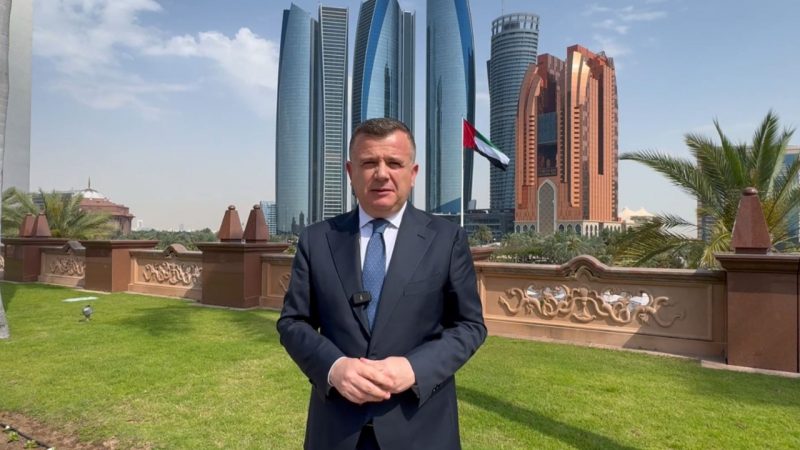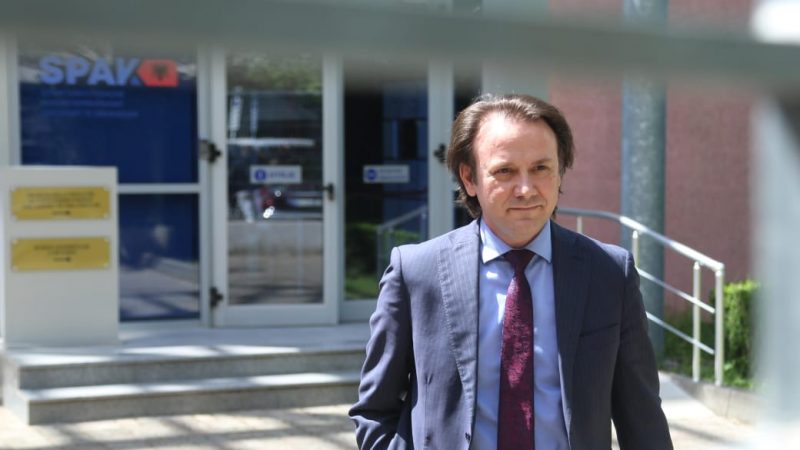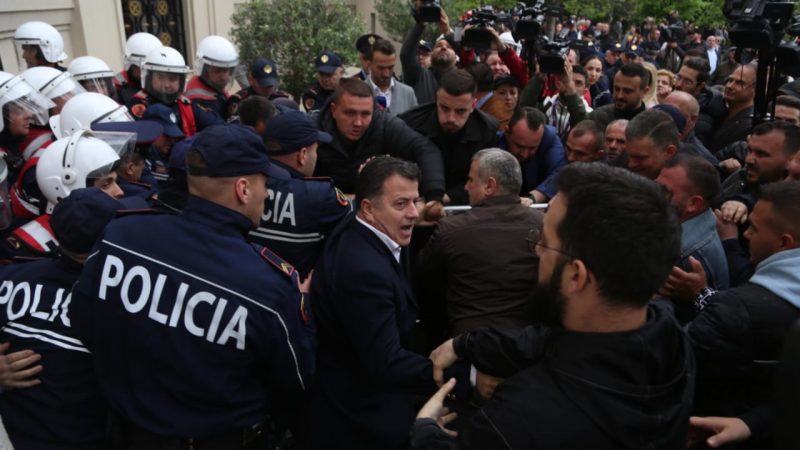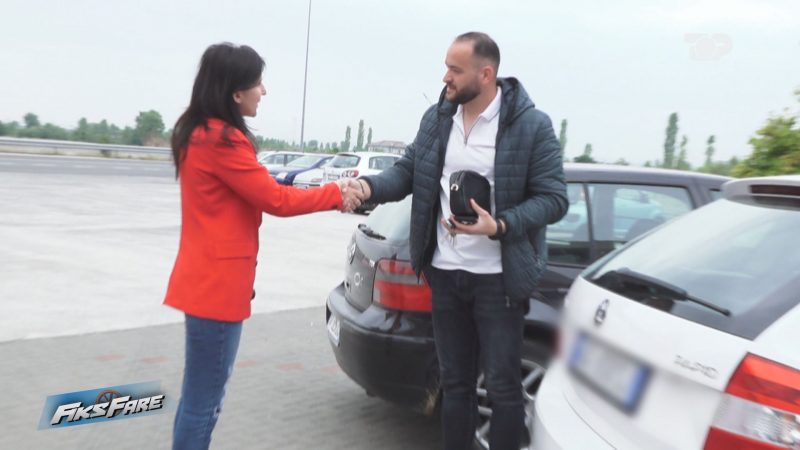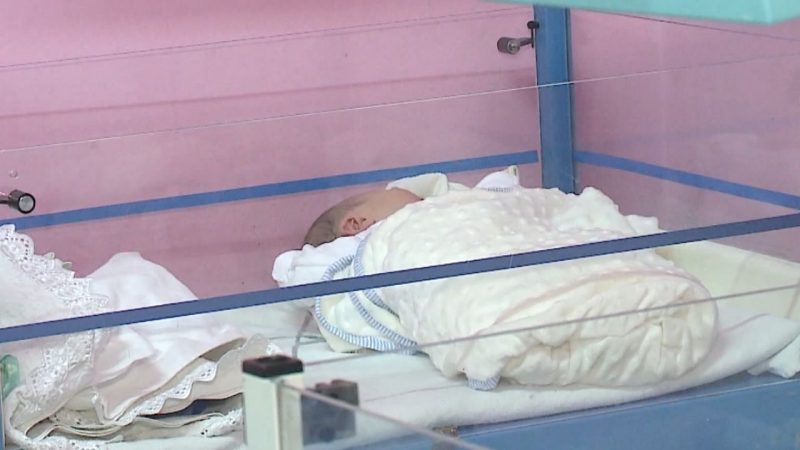 Albania had more births in the region, calculations show lower rate of population decline than neighbouring countries
Albania had more births in the region, calculations show lower rate of population decline than neighbouring countries
25/02/2015 00:00
The Vice President of the left centered European Parliament parties,
Knut Fleckenstein, defended the draft introduced for ALbania and the
Foreign Committee, in which our country is encouraged to fulfill the
five key priorities for starting the EU accession negotiations, but
without giving any date.
The rapporteur declared that he had received many complaints for the public administration, which he had passed to the Ombudsman.
“The ambitious reform for the public administration in Albania is absolutely vital, because it makes way to all other reforms. For this reason, I have given more attention to this reform on the draft-report. The implementation of the new Law for Civilian Service has started. It aims to reduce corruption and make a more depoliticized and more professional administration. I have received many letters from Albanian citizens who complain about the public administration, and I have spoken with the Ombudsman for how important it is to follow them and take actions. Corruption and organized crime need to be fought in all levels, with successful efforts that involve all institutions in a more strategic approach. For starting the accession negotiations, Albania must support stable reforms, especially as regards the fight against corruption. Things must have positive and tangible changes for the Albanian citizens. The public trust to the democratic institutions must increase, and the civil society should be involved in public and political matters”, Fleckenstein declared.
The first report of Fleckenstein for Albania was valued as “good and balanced” by other political groups and the representative of the European Commission, who was encouraged by the Romanian MP, Bostinaru, “to start the accession negotiations with Albania, so that the trust for the enlargement process remains”. A stable political dialogue, corruption, the judiciary, crime, economy and the administration, these were the main topics during the discussions with the Foreign Committee.
“The report is balanced and shows the key challenges that the country is facing, but I am sure that it will be even better after the amendments will be discussed. Albania received the candidate status during the last year, after long political tensions. The political confrontations were the main obstacle for continuing with the integration process of Albania. I think that the report underlines the importance of political dialogue, of resolutions through compromise and the need to improve the political culture. The rule of law, corruption and organized crime remain important issues. The judiciary reform and its independence need to be a priority. The territorial administrative reforms for the public administration should also be emphasized in the report. I know that these reforms have been politically contested, but I think that in the end they will help the country have a better civilian service and a more efficient public administration, which is the basis of the integration process”, Kukan declared.
“On behalf of the Commission, I want to underline the work done by the rapporteur and Mr.Kukan, with the efforts of all parties to return the opposition in Parliament after the boycott, through the agreement reached last December. Its implementation without obstacles is now key to guarantee the stability of the European reforms of Albania. I think that it is essential to try and find how the EU related reforms are liked. We agree with the report part which says that the government and the opposition share the same responsibilities to the Albanian citizens to engage in a constructive dialogue in Parliament. The draft-resolution acknowledges the progress made in Albania and I don’t think that this is the right time for complaints. I appreciate the view of the draft-resolution which says that the candidate status should encourage more reforms in Albania, and that there is still a lot to be done for the five key challenges, especially for the public administration reform, the rule of law and the basic rights. The resolution makes the right analyze here by underlining the need for a full and inclusive judiciary reform, and for developing a solid track record in the fight against corruption and organized crime. I think that this is key for the European integration of Albania in the future, but iut is key also for us to sell the developments of Albania to our citizens. To answer to Mr.Tanock, if he sees the facts for the calendar of 2014, Albania was noted for complying at 100% with the Committee of Policies and Security of the EU stances. Thisis a strong asset for the EU path of Albania”, declared Simon Mordue, representative of the European Commission.
The follow-rapporteur at the conservatory group, Charles Tannock, as usually, didn’t forget the “problematic participation” of Albania in the Islamic Conference. He also mentioned the 500 Albanians who are fighting in Syria and Iraq, although he said that this number included the Albanians living in other Balkan countries. For the liberals, the most important things are the structural reforms, economic development, media freedom, gender equality and the social involvement of minorities, which was supported by the Slovenian MP, Tanya Fayon, especially for the Roma community and also based on the concern for a higher number of asylum seekers from Albania. As for the Greek minority, the representative of the Golden Dawn at the Foreign Commitee declared that they are very concerned about this issue, and also for the issue of “Greater Albania”.
“There are some political groups in Albania which have government support. They want to creat the Greater Albania. They are well organized for this. They have internet connections, have their own flag and their own map in it. The match between Serbia and Albania in Belgrade gathered Albanians from Kosovo, Macedonia, Greece and other countries. The problem with the supporters of Greater Albania is that they want Epirus, northern Greece, and are tolerated by the Albanian government, which is not respecting the rights of the Greek citizens in Himara, who were forced to receive an Albanian passport. I think that this should be included in the report”, declared George Epitideios, Greek European MP, representative of the Golden Dawn.
“The co-existence of religious communities is something for which the Albanian citizen s are proud. I think that they should export this value as much as they can in the other countries, because it is the best example. It should be a good example for the political class too. As for the Greater Albania, those groups do not participate in politics, do not play a role in the civilian society, and for this reason they cannot be in my report”, Fleckenstein declared.
The leader of this session declared that March 3rd is the last deadline for the propositions of the European MPs to make changes in the draft. The rapporteur guaranteed a period of one month, in order to work wiuth the political groups regarding the amendments of the compromise. The Resolution for Albania will be approved by the end of April, during the plenary session in Strasbourg.
Prepared by: ARTA TOZAJ
Top Channel
 Albania had more births in the region, calculations show lower rate of population decline than neighbouring countries
Albania had more births in the region, calculations show lower rate of population decline than neighbouring countries 23/04 16:14



